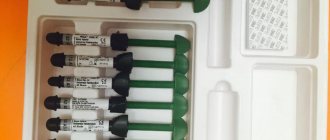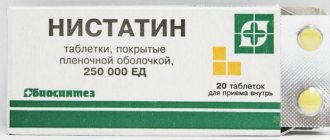In the article we will look at the instructions for use of Tsiprolet drops.
Are they ear or eye? Let's figure it out.
This is an antibiotic intended for local use and showing increased activity against many pathogenic microorganisms. "Tsiprolet" is prescribed to eliminate the inflammatory process in the eyes caused by harmful bacteria. The drug is low-toxic, which makes it possible to prescribe drops to children over the age of one year. This antibiotic is relatively safe and rarely causes adverse reactions, especially when applied topically. In general, the drug is intended for the eyes. But Tsiprolet drops are also used in the ears.
Properties
This substance has a pronounced antibacterial effect and affects many pathogenic microorganisms. The spectrum of action of ciprofloxacin is quite wide. The substance has no analogues in nature and is not an antibiotic in the full sense of the word, as it differs in chemical composition. The drug is prescribed for the treatment of infectious pathologies caused by infection with gram-negative or gram-positive bacteria.
The use of Tsiprolet drops is advisable in cases where pathogens of the pathological process demonstrate resistance to other antibacterial substances. When used topically, it is possible to prevent immunological adverse reactions to the drug.
The effectiveness of the drug is due to the inhibition of the synthesis of topoisomerase, a bacterial enzyme responsible for the production of DNA. As a result, the cell of the pathogenic microorganism ceases to function normally and dies.
The bactericidal effect of the drug is ensured both at the stage of active bacterial growth and at rest. Another important property of ciprofloxacin is that when used simultaneously with other antibiotics, bacteria do not have the opportunity to develop resistance to them. That is, “Tsiprolet” is especially effective in combination with other antibacterial agents, such as aminoglycosides, penicillins, cephalosporins and tetracyclines.
In what other cases is the use of Tsiprolet eye drops indicated?
special instructions
Monitoring of blood pressure, heart rate, and ECG is required with the simultaneous administration of general anesthesia drugs (barbituric acid derivatives) and ciprofloxacin. Exceeding the daily dosage may lead to crystalluria . Tsiprolet affects transport control and concentration. For patients with organic brain lesions, vascular pathology, epilepsy, or a history of seizures, the drug Tsiprolet is prescribed in exceptional cases, for “vital” indications. Before antibacterial therapy, it is necessary to exclude pseudomembranous colitis . Treatment is stopped at the first signs of tendovaginitis , the appearance of pain in the tendons. It is important to avoid sun exposure during treatment.
There is no article on the drug on Wikipedia; the online encyclopedia contains only information about the active ingredient ciprofloxacin.
Indications
The drug in the form of drops is prescribed for the treatment of infectious and inflammatory eye diseases, including:
- Conjunctivitis in acute and subacute forms.
- Blepharoconjunctivitis and blepharitis.
- Ulcerative lesion of the cornea of the eye of bacterial origin.
- Chronic dacryocystitis and meibomitis.
The list of indications for Tsiprolet eye drops is quite extensive.
In addition, the product is used as a preparatory step before surgical manipulations on the eye in order to prevent infectious complications. Drops are also prescribed after surgery. The drug is also included in complex therapy if complications arise after injury to the eye or a foreign body entering it.
We have reviewed the indications for Tsiprolet drops. Let's find out what contraindications they have.
Contraindications
Contraindications for using the drug are:
- Hypersensitivity to substances belonging to the group of fluoroquinolones.
- Individual intolerance to ciprofloxacin or other substances included in the drug.
- Gestation and breastfeeding period.
- The child is under one year old.
"Tsiprolet" is not prescribed against the background of keratitis of viral origin. The drug is used with caution in cases of cerebral atherosclerosis, as well as against the background of circulatory disorders.
Below are instructions for “Tsiprolet”. Ear drops are not used very often; we will describe them later.
Analogues of Tsiprolet
Level 4 ATX code matches:
Dancil
Oftadek
Signitsef
Oftaquix
Vitabact
Okomistin
Analogues of Tsiprolet in composition are the following drugs: Alox , Floximed , Ciloxan , Ciproxol , Tsipromed , Tsipropharm , Ciprofloxacin , Tsifran , Tsiprol , Cipronate , Ificipro , Medociprin and others.
Are Tsiprolet and Tsifran the same thing?
Tsifran is an analogue of the drug in terms of the active substance.
Instructions and method of use
After administration of "Tsiprolet" into the eyes, the concentration of ciprofloxacin is 5 mg/ml of blood plasma. The level of active component content can be maintained in the required amount for up to 12 hours.
Ciprofloxacin is excreted primarily by the kidneys unchanged. The remaining substances are excreted in the intestines with feces. The active component is excreted in breast milk, which explains the ban on the use of the drug during lactation.
Eye drops are used exclusively topically by instillation into the conjunctival sac. If the infection is mild or moderate, instillation is carried out every four hours, 1-2 drops. If the pathological process is severe, 2 drops should be instilled into the eyes every hour. When the patient's condition improves, the dosage of the drug can be reduced.
If the cornea of the eye has been affected by a peptic ulcer of bacterial origin, the doctor prescribes instillation of the drug every 15 minutes for six hours, 1 drop. Further, the interval between instillations increases to half an hour. On the second day of treatment, the drug is instilled one drop every hour. From the third to the seventh day of treatment, Tsiprolet is instilled every four hours. If after one week a new epithelial layer has not been formed on the cornea of the eye, treatment can be prolonged in consultation with the doctor.
To prevent infectious complications after surgery, it is recommended to instill 1-2 drops into each eye before surgery and every five hours for the first day after.
Tsiprolet price, where to buy
The price of Tsiprolet in tablets of 500 mg is 110 rubles per pack of 10 pieces.
The price of 250 mg tablets is approximately 55 rubles per pack.
The price of Tsiprolet in eye drops is 60 rubles.
You can always check the current cost of an antibiotic in online pharmacies, for which you can use our selection below. How much the drug costs depends on the country.
- Online pharmacies in RussiaRussia
- Online pharmacies in UkraineUkraine
- Online pharmacies in KazakhstanKazakhstan
ZdravCity
- Ciprolet tablets p.p.o.
500mg 10 pcs.Dr. Reddy's lab. 112 rub. order - Tsiprolet eye drops 3mg/ml 5mlDr. Reddy's lab.
56 RUR order
- Ciprolet tablets p.p.o. 250mg 10 pcs.Dr. Reddy's lab.
57 RUR order
- Tsiprolet A tablets p.p.o. 500mg+600mg 10pcsDr. Reddy's lab.
RUB 219 order
Pharmacy Dialogue
- Tsiprolet 500 tablets p/o 500 mg No. 10Dr. Reddy's
99 RUR order
- Tsiprolet ch. drops (5ml bottle)Dr. Reddy's
58 RUR order
- Tsiprolet A tablets 500mg+600mg No. 10Dr. Reddy's
RUB 204 order
- Tsiprolet 250 tablets p/o 250 mg No. 10Dr. Reddy's
59 RUR order
- Tsiprolet Ch. drops (head drops 3 mg/ml 5 ml)Dr. Reddy's
56 RUR order
show more
Pharmacy24
- Ciprolet 500 mg No. 10 tablets Dr. Reddy's Laboratories Ltd., India
82 UAH.order - Ciprolet 25 mg N10 tablets Dr. Reddy's Laboratories Ltd., India
53 UAH order
- Ciprolet A N10 tablets Dr. Reddy's Laboratories Ltd., India
147 UAH order
PaniPharmacy
- Tsiprolet tablets Tsiprolet tablets, film-coated 250 mg No. 10 India, Dr. Reddy's
58 UAH order
- Tsiprolet A tablets Tsiprolet A tablet. No. 10 India, Dr. Reddy's
161 UAH order
- Tsiprolet tablets Tsiprolet film-coated tablets 500 mg No. 10 India, Dr. Reddy's
107 UAH order
show more
Use for otitis media
What else does the Tsiprolet instruction tell us?
Ear drops are widely used in the practice of otolaryngologists for the treatment of otitis media. As a rule, they are prescribed if other antibacterial substances are ineffective. The solution for instillation is sterile, which allows it to be instilled into the ears as prescribed by a doctor. Tsiprolet ear drops are prescribed for the treatment of otitis media of the middle ear and external type, as well as complications of an inflammatory and infectious nature during the recovery period after surgery.
When prescribing a drug for the treatment of otitis, you should take into account the fact that Tsiprolet ear drops have certain contraindications. The dosage is determined by the doctor depending on the form and course of the pathological process. The duration of use is also prescribed by a specialist.
For mild otitis, 1-2 Tsiprolet ear drops are instilled into the affected ear, and the procedure is repeated every four hours. In the case of an acute course, the interval between instillation should be one hour until positive dynamics and improvement in the patient’s condition occur. Next, the treatment is adjusted. The duration of therapy is 7-10 days, but in exceptional cases the specialist may decide to prolong treatment up to one month.
In childhood, the dosage and frequency of use of Tsiprolet ear drops is also determined by the doctor depending on the nature and form of the pathological process. It is not recommended to complete treatment on your own, as this may affect the child’s immune system. The course must be completed in full, strictly as prescribed by the doctor.
Side effects
Digestive tract: vomiting, diarrhea syndrome, flatulence, epigastric pain, nausea, bloating , cholestatic jaundice , decreased appetite, hepatonecrosis, hepatitis.
Nervous system: insomnia, dizziness, anxiety, fatigue, peripheral paralgesia , nightmares, tremors of the extremities, increased intracranial pressure, increased sweating, hallucinations, depression, confusion, various psychotic reactions, thrombosis of the cerebral arteries , fainting, migraine.
Sense organs: hearing loss, tinnitus, taste disturbances, diplopia. Possible development of tachycardia , drop in blood pressure, heart rhythm disturbances, development of anemia, granulocytopenia, leukocytosis.
Genitourinary system: polyuria, dysuria, glomerulonephritis, crystalluria, hematuria, interstitial nephritis, impaired nitrogen excretory function of the kidneys.
Tsiprolet can provoke an allergic response, urticaria, arthralgia , tenosynovitis, arthritis and other side effects.








